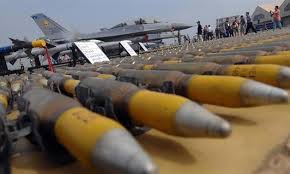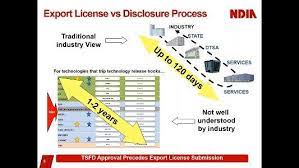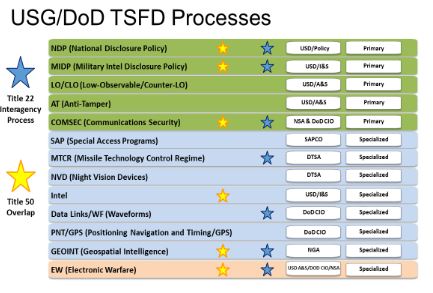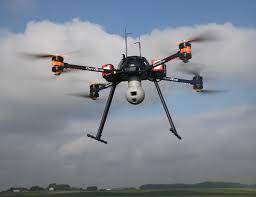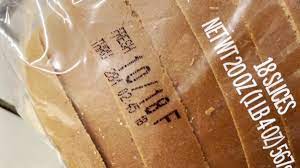Foreign Military Sales (FMS) programs have been a cornerstone of international defense cooperation, enhancing the security capabilities of allied nations and strengthening geopolitical alliances. These programs, facilitated by the U.S. government, provide foreign allies with defense articles, services, and training. Here, we explore some notable case studies of successful FMS programs, illustrating their significant impact… Read More
How to Determine if a Commodity is Not “Specially Designed”
Navigating the intricate web of regulations surrounding international trade in defense-related articles and services can be daunting, especially when it comes to compliance with the International Traffic in Arms Regulations (ITAR). Among the various provisions outlined in ITAR, the concept of items not being “specially designed” holds significant weight. Determining whether a commodity falls within… Read More
Ensuring National Security: The Importance of Proviso Compliance on ITAR Export Licenses
In the intricate world of international trade, particularly in the realm of defense-related technologies, adherence to regulations is paramount to safeguard national security interests. Among the key regulations governing such trade is the International Traffic in Arms Regulations (ITAR), administered by the United States Department of State. Within ITAR, export licenses play a crucial role,… Read More
Understanding Technology Security & Foreign Disclosure (TSFD) Pipes: A Comprehensive Guide
In today’s interconnected world, where technology plays a pivotal role in nearly every aspect of our lives, security is paramount. This is especially true when it comes to sensitive technologies that have the potential to impact national security and international relations. One crucial mechanism in managing this delicate balance is through Technology Security & Foreign… Read More
Navigating Technology Security & Foreign Disclosure (TSFD) Requirements for Small and Medium-sized Enterprises (SMEs) under the Arms Export Control Act (AECA)
Introduction: In international arms trade, small and medium-sized enterprises (SMEs) play a crucial role in innovation and supply chain diversity. However, navigating the complex landscape of Technology Security & Foreign Disclosure (TSFD) requirements under the Arms Export Control Act (AECA) can be daunting for SMEs venturing into this arena. In this blog post, we’ll explore… Read More
A Comprehensive Guide to Implementing DDTC’s ITAR Compliance Program Guidelines
Introduction: In the ever-evolving landscape of international trade and national security, the International Traffic in Arms Regulations (ITAR) plays a crucial role in safeguarding sensitive defense-related technologies. Administered by the U.S. Department of State’s Directorate of Defense Trade Controls (DDTC), ITAR compliance is essential for companies involved in the export and import of defense articles… Read More
Crafting an Effective Voluntary Self-Disclosure for ITAR Violations: A Guide to Transparency and Compliance
Introduction: In the complex world of international trade, compliance is paramount. For businesses engaged in the export of defense-related technologies, such as those covered by the International Traffic in Arms Regulations (ITAR), inadvertent violations can occur. When such violations are identified, voluntarily reporting them through a well-crafted Voluntary Self-Disclosure (VSD) is a crucial step towards… Read More
New License Exceptions Available for UAS Under the EAR
The Bureau of Industry and Security (BIS) is amending the Export Administration Regulations (EAR) to reflect changes to the Missile Technology Control Regime (MTCR) Annex. This Federal Register rule (2023-26682.pdf (federalregister.gov) expands the eligibility for the use of license exceptions under the EAR for MT-controlled items. These changes to license exception eligibility are also being… Read More
Navigating the Regulatory Seas: The Critical Importance of Understanding ITAR Export License Expiration Timelines
In the world of international trade and defense, the International Traffic in Arms Regulations (ITAR) plays a pivotal role in governing the export of defense-related articles and services. As businesses engage in global commerce, understanding the expiration timelines of ITAR export licenses and agreements becomes paramount. In this blog post, we delve into the reasons… Read More
Unlocking Opportunities: The Benefits of Attending DSCA’s Security Cooperation Industry Group
In the ever-evolving landscape of international security and defense, collaboration between the government and private sector is essential. The Defense Security Cooperation Agency’s (DSCA) Security Cooperation Industry Group (SCIG) stands out as a key platform for fostering meaningful partnerships and driving innovation in the realm of security cooperation. Let’s explore the numerous benefits that professionals… Read More
